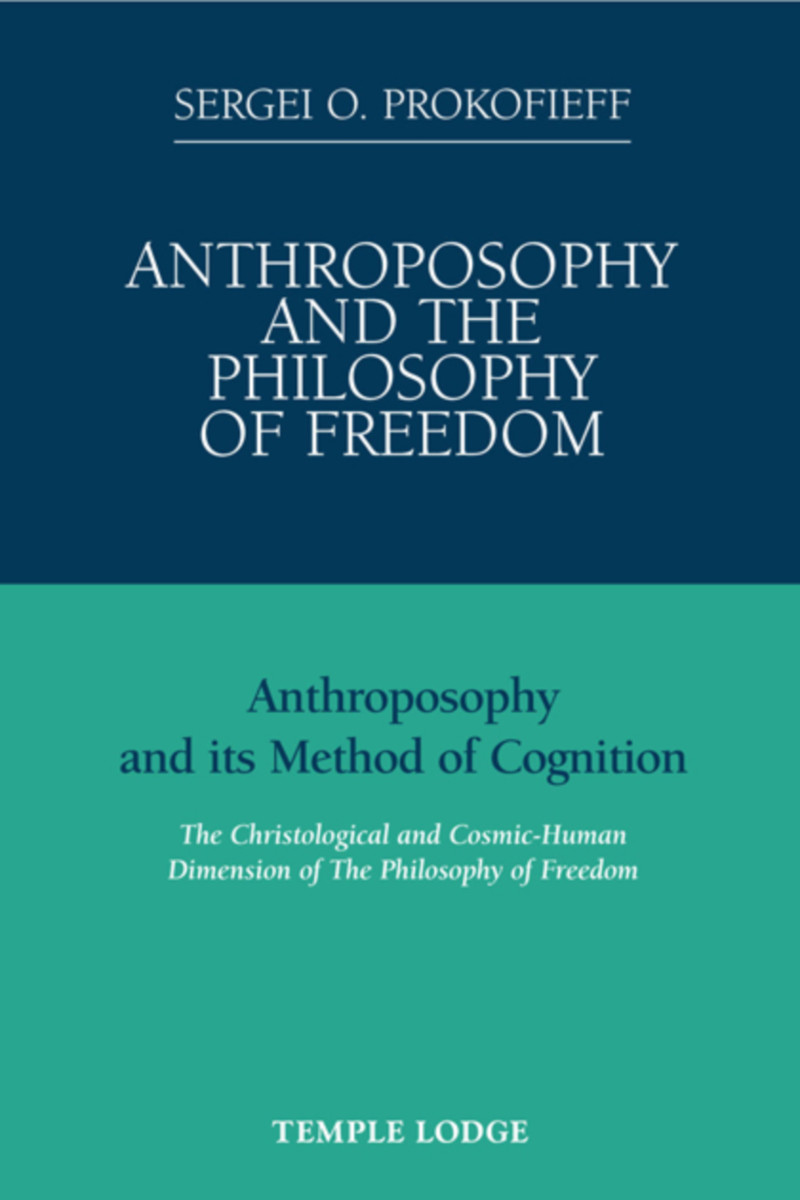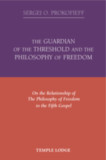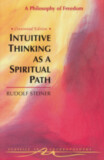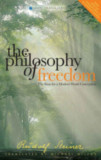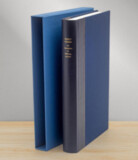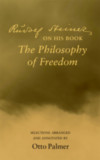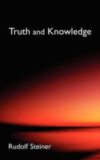Anthroposophy and the Philosophy of Freedom
Anthroposophy and Its Method of Cognition
- Publisher
Temple Lodge Publishing - Published
23rd June 2009 - ISBN 9781906999025
- Language English
- Pages 304 pp.
“I asked Rudolf Steiner, ‘What will remain of your work thousands of years from now?’ He replied, ‘Nothing but The Philosophy of Freedom. But everything else is contained in it. If one realizes the act of freedom described there, one can discover the whole content of Anthroposophy.’” — Walter Johannes Stein
Some people’s path to Anthroposophy leads them directly to Rudolf Steiner’s early work Intuitive Thinking as a Spiritual Path: A Philosophy of Freedom, which becomes the philosophical basis for further exploration. Steiner referred to this as a “safe” approach. However, the destiny of many leads them directly to Anthroposophy itself, perhaps through one of its practical initiatives such as Waldorf education or biodynamics, sometimes making it difficult to relate to the cognitive basis of Anthroposophy.
In this unique study, Prokofieff offers a fresh approach to Steiner’s crucial book, Intuitive Thinking as a Spiritual Path. He shows why the book is so important to Anthroposophy as the work in which Steiner lays a foundation for his method of spiritual research. In Steiner’s own words, “One who is willing can indeed find the basic principles of Anthroposophy in my Philosophy of Freedom.”
Prokofieff discusses the Christian nature of the anthroposophic means of cognition and how it is integral to freedom and love. This in turn reveals the deeply Christian roots of Intuitive Thinking as a Spiritual Path and its importance for modern Christian esoteric work.
In considering its multifaceted cosmic and human dimension, Prokofieff discusses Intuitive Thinking as a Spiritual Path in relation to the mystery of the Resurrection, the work of the hierarchies, the being Anthroposophia, the “Fifth Gospel,” Steiner’s path of initiation, the Rosicrucian and Michaelic impulses, the life between death and rebirth, the Foundation Stone, the Christian mysteries of karma, and the science of the Grail.
C O N T E N T S:
Preface
1. Method of Cognition in Anthroposophy
2. The Philosophy of Freedom and the Mystery of the Resurrection
3. The Philosophy of Freedom and the Working of the Hierarchies
4. Aspects of the Study of Man in The Philosophy of Freedom
5. The Three Sciences
6. Michael and The Philosophy of Freedom
7. The Philosophy of Freedom in the Light of the Fifth Gospel
8. The Fifth Gospel and Rudolf Steiner's Path of Initiation
9. Metaphysical Foundations for the Unconditionality in The Philosophy of Freedom
10. The Philosophy of Freedom and the Being of Anthroposophy
11. The Rosicrucian and Michaelic Impulses in The Philosophy of Freedom
12. The Philosophy of Freedom and the Life between Death and Rebirth
13. The Impulse of Freedom and the Christian Mysteries of Karma
14. The Philosophy of Freedom and the Modern Science of the Grail
15. The Creation of the foundation Stone out of the Substance of the Grail
16. The Foundation Stone and The Philosophy of Freedom
Epilogue
Addendum I: About the Inner Being of the Human "I"
Addendum II: Three Streams in the Evolution of the Earth
Sergei O. Prokofieff
Sergei O. Prokofieff (1954-2014) was born in Moscow, where he studied fine arts and painting at the Moscow School of Art. At an early age he encountered the work of Rudolf Steiner and quickly realized that his life would be dedicated to the Christian path of esoteric knowledge. He wrote his first book, Rudolf Steiner and the Founding of the New Mysteries, while living in Soviet Russia, and it was published in English in 1994. After the fall of Communism, he helped establish the Anthroposophical Society in Russia. In 2001, he became a member of the Executive Council of the General Anthroposophical Society at the Goetheanum in Switzerland. More than 30 of his books have been translated into English. Sergei Prokofieff passed away in Dornach, Switzerland.


